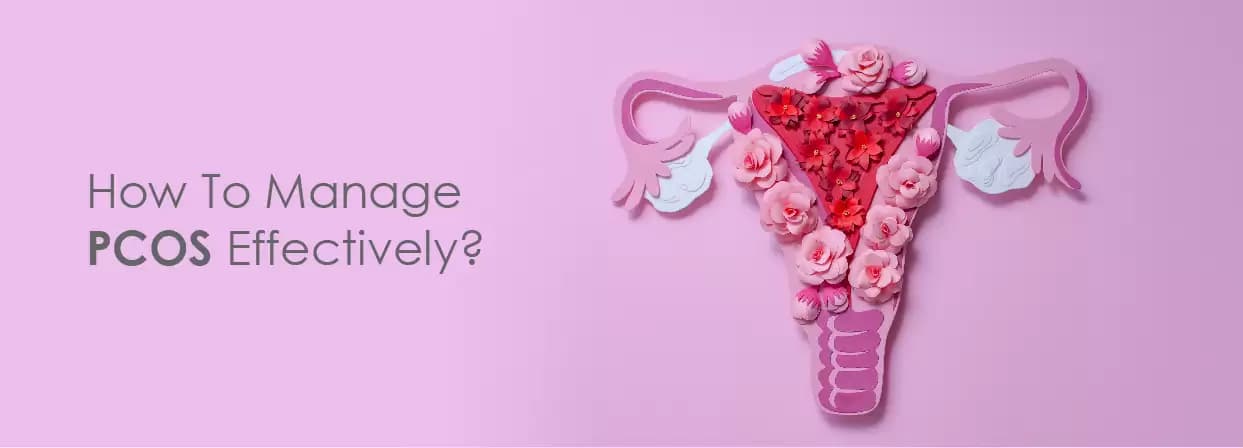
In this blog, the best gynecologist in Kolkata has discussed a few ways and methods to prevent PCOS effectively.
Polycystic ovarian syndrome, or PCOS, has become a common health problem among Indian women in recent years. PCOS is thought to be caused by an imbalance in reproductive hormones. It can cause small cysts to grow in one or both ovaries, as well as pregnancy complications. According to a study, one out of every five women suffers from PCOS these days.
If you are experiencing the same symptoms and are interested in learning how to manage PCOS symptoms, you have come to the correct place. In this blog, the best gynecologist in Kolkata has discussed a few ways and methods to prevent PCOS effectively. Continue reading!
PCOS is a gynecological condition in which monthly ovulation does not occur and androgen (male hormone) levels are elevated. This also leads to irregular menstruation cycles. As a result of PCOS, at least 12 cysts (fluid-filled sacs) grow on one or both ovaries.
Although the specific cause of polycystic disease remains unknown. According to current research, it is multifaceted and has a genetic propensity. If your mother or sibling has PCOS, you are more likely to have it as well. Knowing the reason can help your doctor to treat it in an efficient way.
As per the best gynecologist in Kolkata, other factors that can cause PCOS are mentioned below-
Insulin resistance- When insulin levels rise, the ovaries create and release male hormones (androgens). As a result, elevated levels of male hormone restrict ovulation and contribute to other PCOS symptoms.
Being overweight or obese might also lead to insulin resistance. Even if your blood glucose levels are normal, having a high level of insulin can indicate insulin resistance.
PCOS due to inflammation- This is caused by chronic low-grade inflammation. An increase in CRP and white blood cells indicates the presence of an inflammatory response.
To avoid inflammatory PCOS, have nutritious food and live a healthy lifestyle.
PCOS due to hormonal imbalance- This happens when you are constantly stressed. A spike in cortisol and DHEA levels can indicate PCOS.
The treatment will differ depending on your age, overall health, the intensity of your symptoms, and whether or not you wish to become pregnant.
The first thing you should do, according to the top gynecologist in India, is to make certain particular alterations to your usual lifestyle.
-Reduce your androgen levels.
-Can help to minimize hair loss
-Limit the growth of undesired hair.
-Aid in the treatment of acne.
-However, before using them, you should always visit your gynecologist. You should not use any PCOS medications on your own.
Insulin sensitizing agents-These medications boost the body's insulin sensitivity and help to keep blood sugar levels stable. These can be beneficial for
-loss of weight
-reduce cholesterol levels
-dealing with irregular menstrual concerns
-reduce infertility in PCOS-affected women.
Acne treatment- Antibacterials and antibiotics can be used to treat acne.
These drugs can be taken as tablets, lotions, or gels. The severity of the acne and the amount of time it has been present dictate the type of treatment.
Retinoids should be avoided if you want to get pregnant since they can cause birth defects.
Apart from the above-mentioned ways, a few dietary and lifestyle changes can help you to alleviate the disease symptoms. If you or someone you know is suffering from PCOS, you can consult our experts practicing in the best gynecology hospital in Kolkata. They will guide you through the ways to win over PCOS and manage those symptoms effectively.
Written and Verified by:

Dr. Samir Kr Ray is a Consultant in Obstetrics & Gynaecology Dept. at CMRI, Kolkata with over 32 years of experience. He specializes in endoscopic surgery and advanced gynaecological endoscopy
Similar Obstetrics and Gynaecology Blogs
Book Your Appointment TODAY
© 2024 CMRI Kolkata. All Rights Reserved.